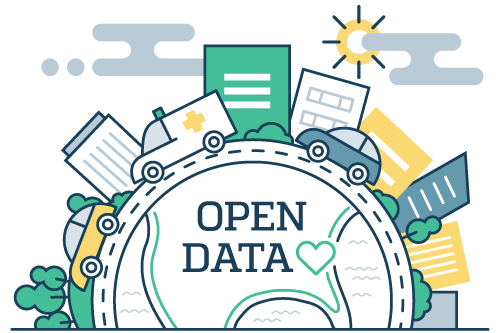
Since the advent of the Internet boom era, our lives have become more data-driven and controlled by a group of people we don’t normally know other than having their employees interact with us. Everyone now lives in small, medium, and large societies that are supported by a variety of apps. Apps have been major drivers of what we do at each of these stages, from completing social tasks to engaging in economic activities and back to expressing our feelings on issues or needs that affect us politically.
But do we really care about who we are based on the data we generate through social and professional applications? We post, share, reply and comment on various current issues on social networking sites without paying close attention to the kinds of identities we are constructing through our own data. We also interact with people from various communities on professional platforms such as LinkedIn. We talk about business concepts. We discuss a variety of professional issues. We occasionally discuss politics on this platform and others because we are political creatures.
Our thoughts on both platforms (social and professional) sometimes lead to the silencing of others while contributing to global and national issues. And we felt better than the people we used our words to silence. On the platforms, we occasionally meet people who will go to any length to oppose our dominance. In this regard, they also silenced us so that they could keep up with the issues we were discussing.
Register for Tekedia Mini-MBA edition 19 (Feb 9 – May 2, 2026): big discounts for early bird.
Tekedia AI in Business Masterclass opens registrations.
Join Tekedia Capital Syndicate and co-invest in great global startups.
Register for Tekedia AI Lab: From Technical Design to Deployment (next edition begins Jan 24 2026).
As the number of digital platforms grows, so does the number of ostracised individuals or groups of individuals. We now live in a world where people are constructing multiple identities. A world in which we have separate online and offline identities. When we are online, what we do and who we say are very different from what people see when we are offline.
Our online self-presentation both helps and hinders others. People are driving long-term benefits when we produce data that improves their socioeconomic and political activities. On the other hand, our use of words, images, illustrations, and other elements created with the intent of constructing an identity or social standing that we do not have in real life has led some people astray because they want to be like us, pursuing goals and aspirations that align with the data we produced.
Overall, we should always consider the types of benefits we want our members of the communities to derive from the data we generate. Do we want to help them or hinder their progress? Should they be included or excluded? When we meet in person, how do we want them to perceive and interact with us?


